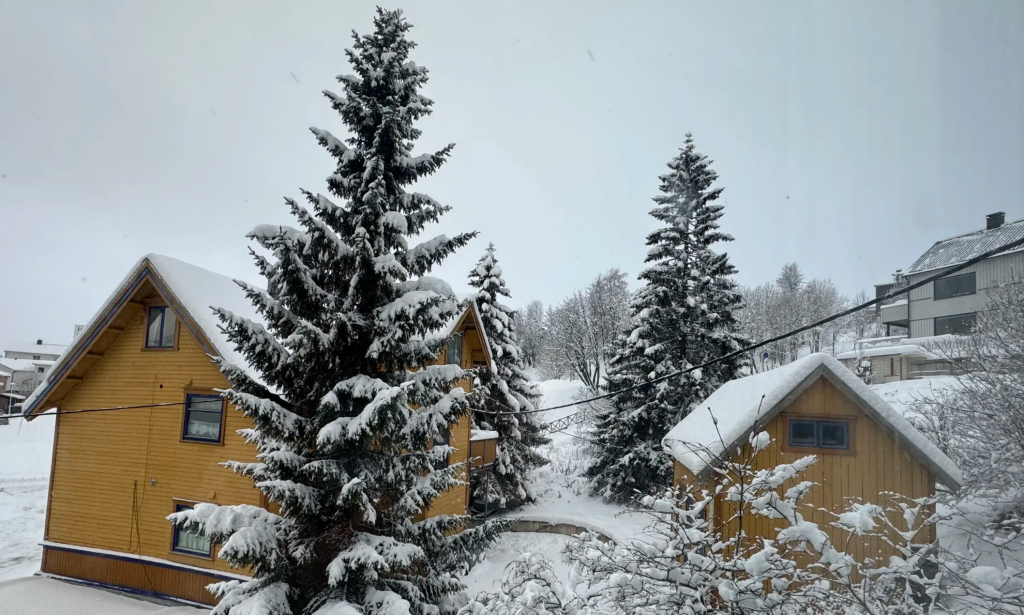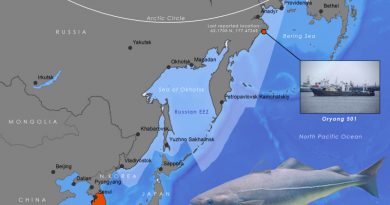Northern Norway feels the consequences of record-high fossil fuel emissions

With 2025 set to be a record year for fossil fuel emissions, experts have concluded that it is no longer plausible to keep global warming below 1.5°C.
Fossil fuel emissions are projected to rise 1.1% in 2025, according to a new report published on Thursday, during the climate talks at COP30 in Belém, Brazil. This is 10% higher than in 2015 when the Paris Agreement was adopted.
“With CO2 emissions still increasing, keeping global warming below 1.5°C is no longer plausible,” said Professor Pierre Friedlingstein, of Exeter’s Global Systems Institute, who led the study. “We need to dramatically reduce emissions,” he added.
“CO₂ levels in the atmosphere are now rising faster than ever recorded, – Kikki Kleiven, director at the Bjerknes Centre for Climate Research, commented on the report. – “This means more heat, more extreme weather — and emissions that will shape the climate for hundreds of years to come… Nature’s ability to absorb carbon is weakening.”
While nature has its own mechanisms for consuming CO₂, such as, for example, oceans and forests, deforestation in Southeast Asia and South America has turned these areas from CO₂ sinks to sources.
New research emphasises that 8% of the increase in atmospheric CO₂ concentrations since 1960 is due to climate change weakening the capacity of land and ocean sinks.
Why it matters
Experts emphasise that continuing global warming will strongly impact winters in northern Norway. Tromsø, the Arctic capital of Norway, is one of the cities that, according to a recent report by the Norwegian climate service, will have a much shorter ski season of only around one month by the end of the century.
The impact of global warming is already evident – the latest satellite photos of the Norwegian archipelago of Svalbard, for instance, illustrate the extent to which local glaciers have melted. The satellite pictures above by the Norwegian Polar Institute show the extent that the Kongsfjorden glacier has melted between 2010 and 2014.
The solution
Research by the Global Carbon Project suggests that developing green energy is the way out. “We now have strong evidence that clean technologies help reduce emissions while being cost-effective compared to fossil alternatives,” Glen Peters, Senior Researcher at the CICERO Center for International Climate Research said.
For example, researchers highlight China, the world’s largest greenhouse gas emitter. The report emphasises that China’s emissions are projected to grow more slowly due to ‘moderate growth in energy consumption combined with extraordinary growth in renewable energy’.
To achieve the goal set out in the Paris Agreement, greenhouse gas emissions should be cut by almost 60% by 2035, the UN reported last year.
Related stories from around the North:
Canada: As COP30 nears, new report warns of ‘irreversible’ polar ice loss, Eye on the Arctic
Finland: Flooding in Finland is getting worse, new climate report says, Yle News
Iceland: Iceland sees security risk, existential threat in Atlantic Ocean current’s possible collapse, Reuters
Greenland: Facing rapid Arctic warming, Inuit call for full voice in COP30 climate decisions, Eye on the Arctic
Norway: Weather above normal for 18 consecutive months, The Independent Barents Observer
Russia: New NOAA report finds vast Siberian wildfires linked to Arctic warming, The Associated Press
Sweden: Proposal—Sweden’s 2030 climate targets to remain unchanged, Radio Sweden
United States: How the Arctic has been ‘pushed & triggered’ into climate extremes: paper, Eye on the Arctic



